EU Monitor 21 December 2021 - Season's greetings from the EAHP team!
The EAHP EU Monitor is a regular round up of news relevant to hospital pharmacy in Europe.
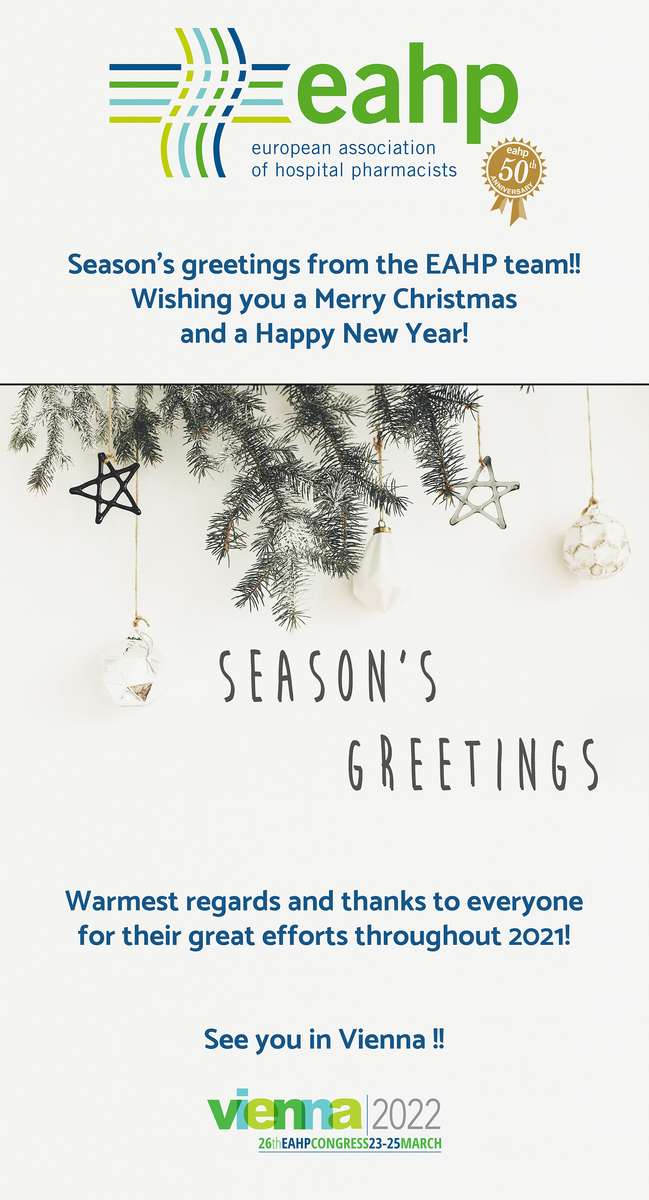
Webinar series on affordability – join us in January 2022!
As medicinal products take up an increasing share of health budgets in Member States, Affordable Medicines Europe, the European Association of Hospital Pharmacists (EAHP) and the European Public Health Alliance (EPHA) have organised a webinar series in January 2022 that seeks to zoom in on solutions to the affordability problem.
The series will consist of three different webinars, each of which will take a deep dive into a specific area that may contribute to increased affordability. Each webinar will entail the participation of 3 to 4 different speakers from academia, associations, and business organisations. On the 11th of January, the first event hosted by Affordable Medicines Europe will focus on competition in the pharmaceutical sector. The second webinar, hosted by EPHA, will be held on the 18th of January and will zoom in on transparency on real costs. Finally, the last webinar, hosted by EAHP on the 25th of January will tackle the issue of affordability from the procurement angle.
Stay tuned for more information about the programme and the registration.
Learn more about the webinar series HERE
Commission publishes a study on shortages of medicines
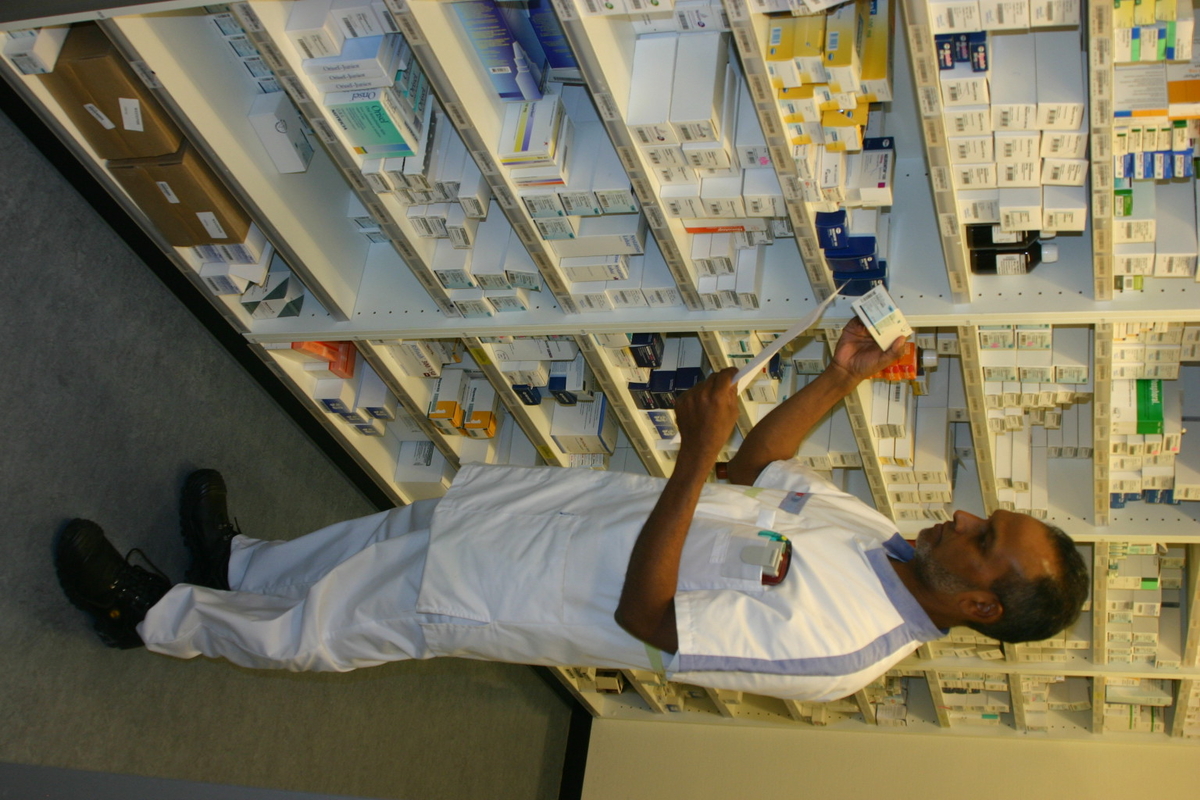 Earlier in December, the European Commission published a study on medicines shortages in the EU, which has been requested by stakeholders – such as EAHP – the European Parliament and the Council. The study provides an overview of the trends and characteristics of medicines shortages in the EU, their root causes and an evaluation of the legal framework.
Earlier in December, the European Commission published a study on medicines shortages in the EU, which has been requested by stakeholders – such as EAHP – the European Parliament and the Council. The study provides an overview of the trends and characteristics of medicines shortages in the EU, their root causes and an evaluation of the legal framework.
Medicines shortages present a significant problem for the quality and continuity of patient care and can also have economic consequences. Though a number of actions have been launched in recent years to address shortages at the EU level, the COVID-19 pandemic has further highlighted the issue of the availability of medicines and the vulnerabilities of supply chains. In relation to the root causes, the study noted that their proper understanding remains substantially challenged by inconsistent and limited reporting. Linked to the legal framework and the two provisions that may help prevent and mitigate medicines shortage it was shown in the study that all Member States have transposed these provisions into national legislation but that they have operationalised them in different ways.
Based on the findings 16 recommendations have been put forward that could address different aspects of the issue of shortages. These solutions collectively cover areas related to the collection and sharing of data and information between parties, supply chain issues, market issues and mitigation strategies. Their implementation will require action by different sets of stakeholders, with some requiring coordination at the level of the European Commission or the EMA whilst others will need to be supported and coordinated by competent authorities or similarly responsible bodies in the
The report will feed into the Commission’s ongoing work on the Pharmaceutical Strategy that seeks to make the European pharmaceutical system more patient-centred, future-proof and crisis-resistant. The Commission aims at presenting a legislative proposal at the end of 2022, including measures to address shortages.
Read the Study on medicine shortages HERE
European Paediatric Formulary: two draft texts released for public consultation
 The European Directorate for the Quality of Medicines & HealthCare (EDQM) has just released Issue 4 of Pharmeuropa PaedForm, which contains two texts for public consultation. The commenting deadline for both Simple syrup (preservative-free) and Phosphate 60 mg/mL Oral solution, prior to their inclusion in the European Paediatric Formulary, is the 31st of March 2022.
The European Directorate for the Quality of Medicines & HealthCare (EDQM) has just released Issue 4 of Pharmeuropa PaedForm, which contains two texts for public consultation. The commenting deadline for both Simple syrup (preservative-free) and Phosphate 60 mg/mL Oral solution, prior to their inclusion in the European Paediatric Formulary, is the 31st of March 2022.
The Simple syrup (preservative-free) monograph was selected to provide users with a standardised vehicle for oral liquids that could be cross-referenced in other European Paediatric Formulary monographs. This simple syrup can also be used as a standardised vehicle in which to suspend or dissolve solid dosage forms immediately before administration. A review of simple syrups used in Europe revealed that concentrations varied between 63% and 66%; 64% was selected for the monograph because this was the most commonly used concentration. The consolidated monograph was drafted taking into account existing test methods and limits present in monographs in Europe. The production steps and test methods were verified experimentally.
The other text, Phosphate 60 mg/mL Oral solution, is the first European Paediatric Formulary monograph to undergo revision. Like all European Paediatric Formulary monographs, Phosphate 60 mg/mL Oral solution is intended to be used by pharmacists to prepare extemporaneous preparations when a suitable licensed product is not available. The monograph is being republished for public consultation to gather comments on the introduction of a tailored annex – potentially to be extended to all Formulary monographs – comprising a list of known licensed options (product name, market authorisation holder and countries in which the product is licensed) that prescribers or pharmacists may consider when treating individual patients. Licensed products remain the gold standard and the aim is to draw attention to medicines that could be suitable for use and that are licensed in at least one European country. Annexing such valuable information to the monograph makes it readily available to clinicians and pharmacists throughout Europe, and enhances the usefulness of the formulary.
Learn more about the consultation and contribute HERE
2021 edition of the State of Health in the EU’s Companion Report
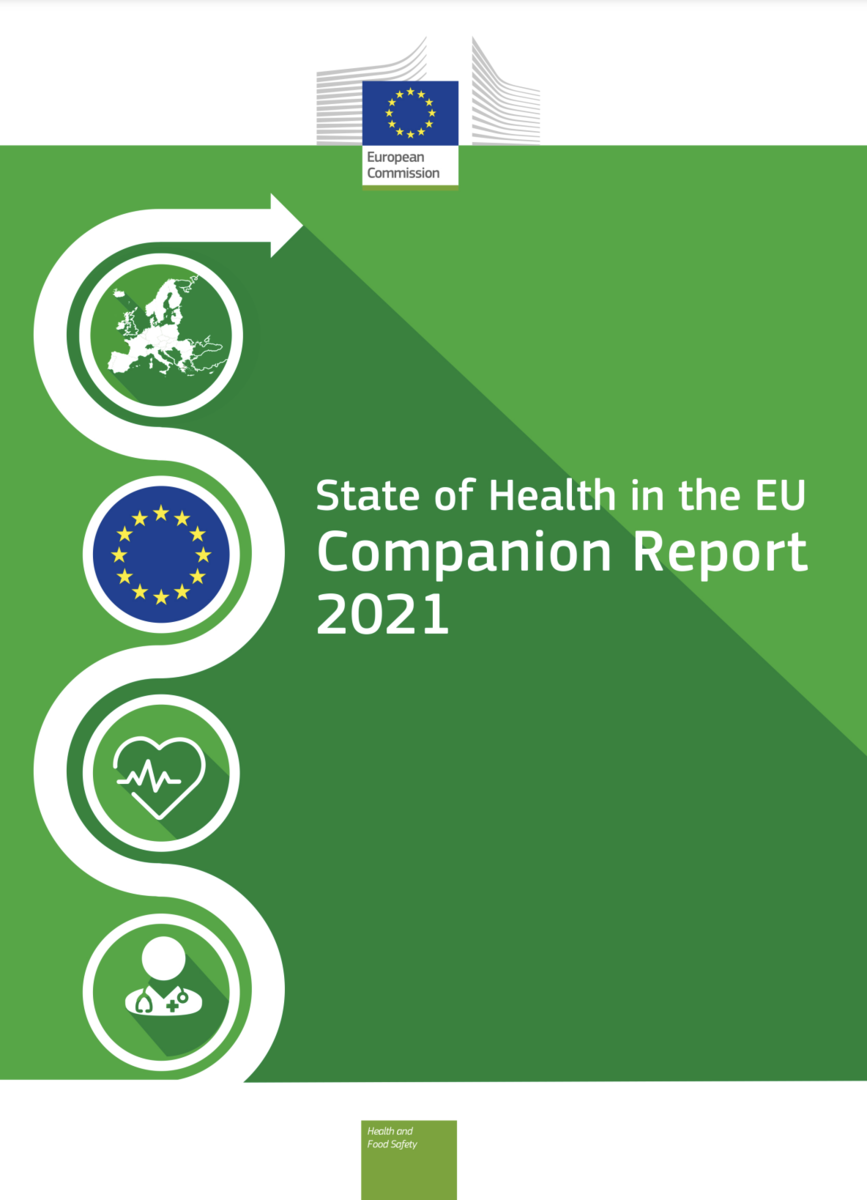 In the context of the State of Health in the EU, the European Commission published in mid-December the Individual 2021 Country Health Profiles, adapted to the context and specificities of each EU country, which assesses the strengths and challenges in their respective health systems, and the Companion Report that showcases some of the most significant trends in the transformation of health systems in the EU.
In the context of the State of Health in the EU, the European Commission published in mid-December the Individual 2021 Country Health Profiles, adapted to the context and specificities of each EU country, which assesses the strengths and challenges in their respective health systems, and the Companion Report that showcases some of the most significant trends in the transformation of health systems in the EU.
The Companion Report touches on three main areas, namely understanding the far-reaching health impact of the COVID-19 pandemic, looking at the advantages of digital innovation in healthcare delivery and public health and rethinking health workforce strategies and planning after the COVID-19 pandemic. The European Health Union, in response to these and other challenges outlined in the report, aims to build more resilient health systems, develop a more robust pandemic response and reduce inequalities in health.
The Country Health Profiles and the Companion Report are part of the State of Health in the EU cycle, a joint project of the European Commission, the Organisation for Economic Co-operation and Development (OECD) and the European Observatory on Health Systems and Policies (Observatory). The Country Health Profiles cover the latest developments in the health systems of all EU countries, as well as of Iceland and Norway. They reflect specific challenges that the countries encountered in the context of the COVID-19 pandemic and provide an analysis of the effectiveness, accessibility and resilience of each country's health system.
Read more HERE
Expand your knowledge in the field of emergency and disaster pharmacy
 Since the end of 2019, the COVID-19 pandemic has concretely highlighted the key role of health care personnel, including pharmacists, in health crisis management. This experience also underlined the value of preparedness to respond to such situations. In this context, the Specialised Centre for Emergency and Disaster Pharmacy opens the registration for its second edition of the CAS "Medicines and medical devices in emergency and disaster situations", which will start in February 2022.
Since the end of 2019, the COVID-19 pandemic has concretely highlighted the key role of health care personnel, including pharmacists, in health crisis management. This experience also underlined the value of preparedness to respond to such situations. In this context, the Specialised Centre for Emergency and Disaster Pharmacy opens the registration for its second edition of the CAS "Medicines and medical devices in emergency and disaster situations", which will start in February 2022.
The objective of this CAS is to provide a recognized interprofessional post-graduate university training in emergency and disaster pharmacy. Indeed, in crises contexts, including humanitarian crisis and daily emergencies in (pre-)hospital and hospital settings, the role of drugs and medical devices is obvious in treating victims and guaranteeing the survival of most individuals. In this respect, specific pharmaceutical and pharmacological knowledge is essential for every health professional involved in emergency and disaster situations, whether in Switzerland or in a humanitarian context abroad.
This program will provide qualified pharmacists, physicians, paramedics and other health professionals with new skills and/or updated knowledge, thus strengthening their expertise in this specific field. Courses will be taught mainly in English and international participants are welcome. They will consist of 6 thematic modules of 2-3 days each and a small final thesis. They will be organized in the Geneva, Lausanne and Bern areas in Switzerland. The modules will also be offered on an individual basis.
Learn more about the CAS on “Medicines and medical devices in emergency and disaster situations” HERE
EJHP: Read the January issue!
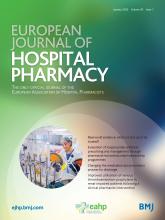 The newest edition of the European Journal of Hospital Pharmacy (EJHP) is available. The January issue contains original research linked to the analysis of standard concentrations of continuous infusions in nine Spanish neonatal intensive care units, the improved utilisation of venous thromboembolism prophylaxis in renal-impaired patients following a clinical pharmacist intervention, the changing the medication documentation process for discharge and its impact on clinical routine and documentation quality as well as the effectiveness, safety and cost analysis of dalbavancin in clinical practice and the EAHP European Statements Survey 2018. The systematic review focuses on the evaluation of inappropriate antibiotic prescribing and management through pharmacist-led antimicrobial stewardship programmes.
The newest edition of the European Journal of Hospital Pharmacy (EJHP) is available. The January issue contains original research linked to the analysis of standard concentrations of continuous infusions in nine Spanish neonatal intensive care units, the improved utilisation of venous thromboembolism prophylaxis in renal-impaired patients following a clinical pharmacist intervention, the changing the medication documentation process for discharge and its impact on clinical routine and documentation quality as well as the effectiveness, safety and cost analysis of dalbavancin in clinical practice and the EAHP European Statements Survey 2018. The systematic review focuses on the evaluation of inappropriate antibiotic prescribing and management through pharmacist-led antimicrobial stewardship programmes.
Read the January issue HERE
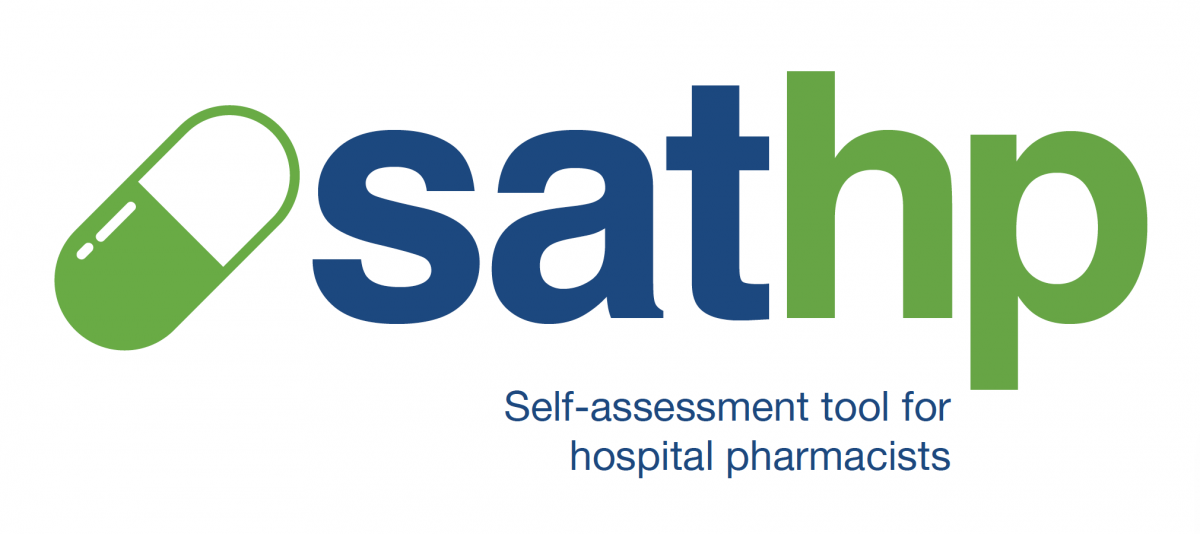 |
[EAHP Statement Corner] |
Assess your pharmacy with EAHP’s SAT!
Since March 2018 EAHP has supported the implementation of the European Statements of Hospital Pharmacy with a self-assessment tool (SAT). EAHP’s SAT helps pharmacies across Europe to understand the level of Statement implementation. To ensure that as many hospital pharmacists as possible can use the SAT, different language versions (Czech, English, French, German, Greek, Hungarian, Italian, Polish, Portuguese, Romanian, Serbo-Croatian, Spanish and Turkish) have been made available. Talk to your chief pharmacist and encourage him/her to work with the SAT. In case you are the head of the pharmacy get your team together and complete your assessment today with the help of the SAT. Learn more about SAT HERE.
 |
[COVID-19 Updates] |
EAHP’s COVID-19 Resource Centre
To assist its member associations and individual hospital pharmacists in this critical time with the provision of the best possible care for patients, EAHP has decided to gather and make available information on COVID-19 relevant for the hospital pharmacy profession.
- Access the Resource Centre HERE
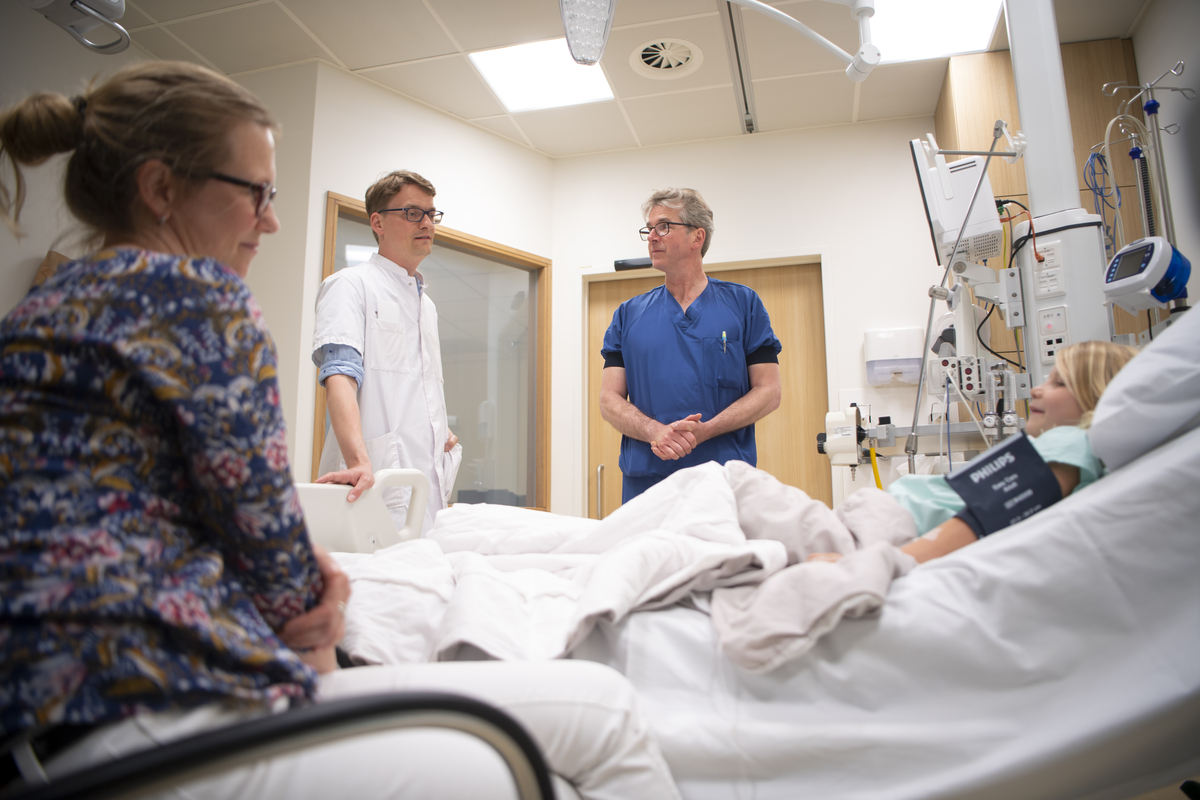 |
[Spotlight] |
EAHP Position Paper on Hospital Pharmacy Specialisation
Hospital pharmacists are the key stakeholders responsible for medication management and safety in the hospital environment, covering both in- and out-patient services and supporting the seamless transition of care for patients moving within the healthcare system. To provide the best treatment for all patients, hospital pharmacists must be able to operate in a complex hospital setting and work collaboratively within multi-disciplinary healthcare teams.
To prepare the hospital pharmacy profession for the future, the European Association of Hospital Pharmacists (EAHP) adopted the European Statements of Hospital Pharmacy in 2014. They express commonly agreed objectives that every European health system should aim for in the delivery of hospital pharmacy services. To further enhance the quality, safety and equity of access to patient care in every European country, EAHP additionally created the Common Training Framework (CTF) project for hospital pharmacy education in Europe. This project not only fosters the further development of hospital pharmacy practice but also seeks to guarantee the access of European citizens to the highest available standard of care and the freedom of movement of the hospital pharmacy profession which is currently not accessible to all.
In June 2021, EAHP's General Assembly adopted a Position Paper on Hospital Pharmacy Specialisation. The position centres around advancing the profession by harmonising the recognition of hospital pharmacy education, enhancing the role of the hospital pharmacist and preparing the profession for future challenges.
To make a difference in medication by advancing the hospital pharmacy profession, EAHP
- calls on the European Commission and the Member States to assist the Association in setting up a CTF through the adoption of a delegated act;
- touches on the need for Member States to recognise the changing role of the hospital pharmacists and further foster their implementation; and,
- underlines the importance of further promoting the uptake of such cross-sector tools inter-sector communication, coordination and multi-disciplinary collaboration in all healthcare facilities should be strengthened.
To adequately address future challenges linked to the ageing society, changing healthcare needs and other unknown factors, like future pandemics, EAHP urges that Member States invest in better workforce planning for the hospital pharmacy profession, including the availability of hospital pharmacy services for all patients of each hospital.
- Read EAHP's Position Paper on Hospital Pharmacy Specialisation HERE
|
[Consultations] |
European Commission – Public consultation on the revision of the general pharmaceutical legislation
This public consultation aims to collect views of stakeholders and the general public in order to support the evaluation of the existing general pharmaceutical legislation and the impact assessment of its revision. It builds further on the public consultation conducted for the preparation of the pharmaceutical strategy for Europe.
Deadline – 21st December 2021
- Access the consultation HERE
EDQM - Draft monograph on Oxygen (98 per cent) published for comment in Pharmeuropa
A new draft monograph, Oxygen (98 per cent) (3098), has been published for comment by the European Directorate for the Quality of Medicines & HealthCare (EDQM). This draft monograph is the outcome of a thorough examination of the substantial response to the request for feedback issued in April 2020 and which prompted lively and constructive discussions with regulatory experts in the field, as well as a series of dedicated European Pharmacopoeia (Ph. Eur.) expert meetings.
Deadline – 31st December 2021
- Access the consultation HERE




